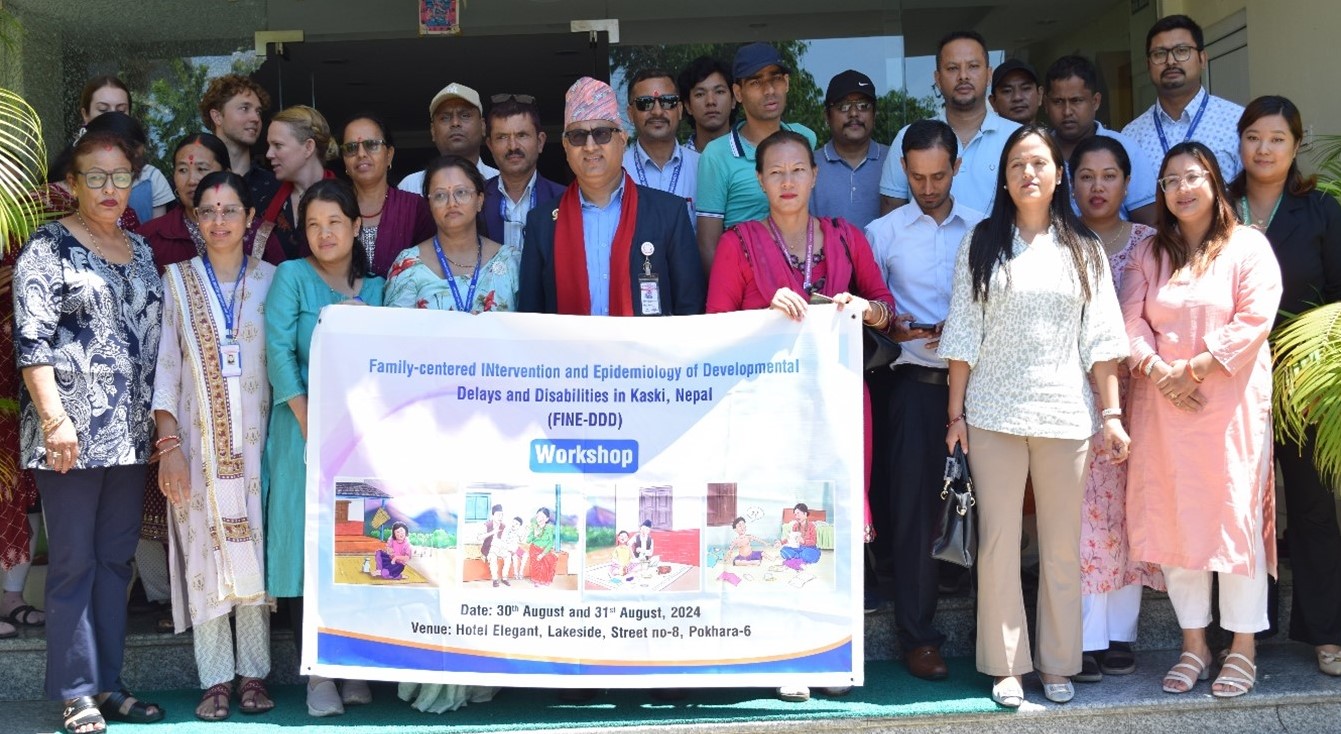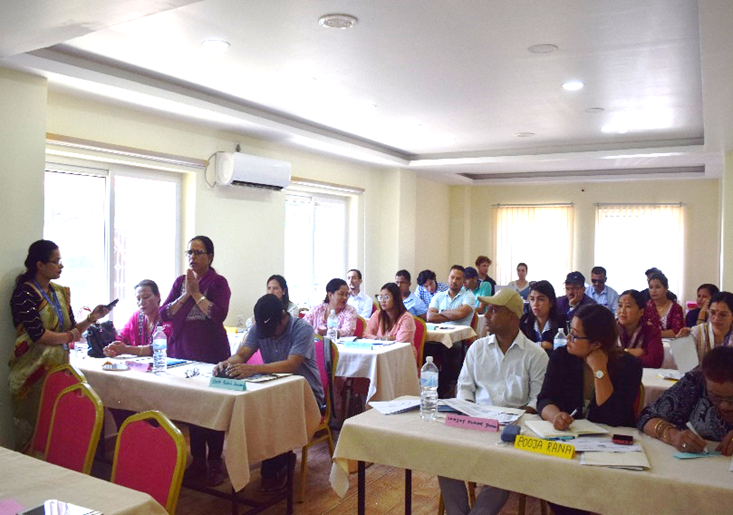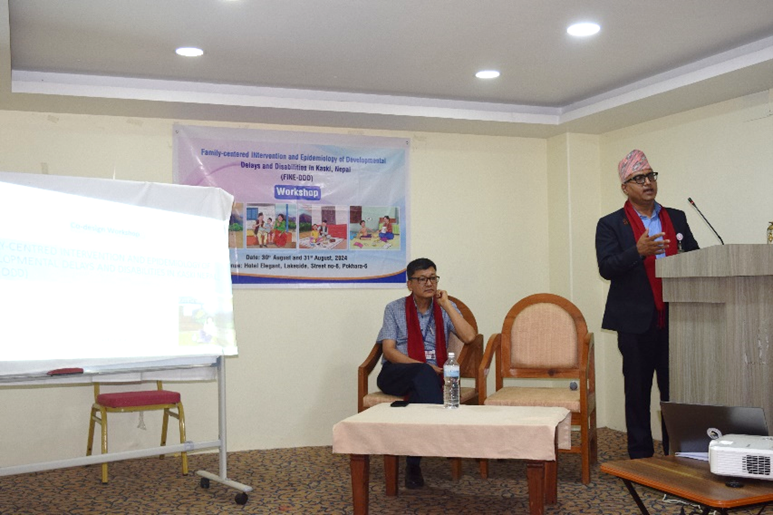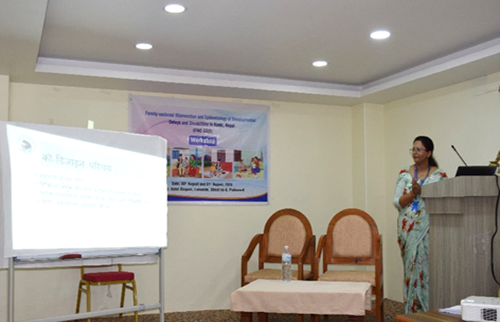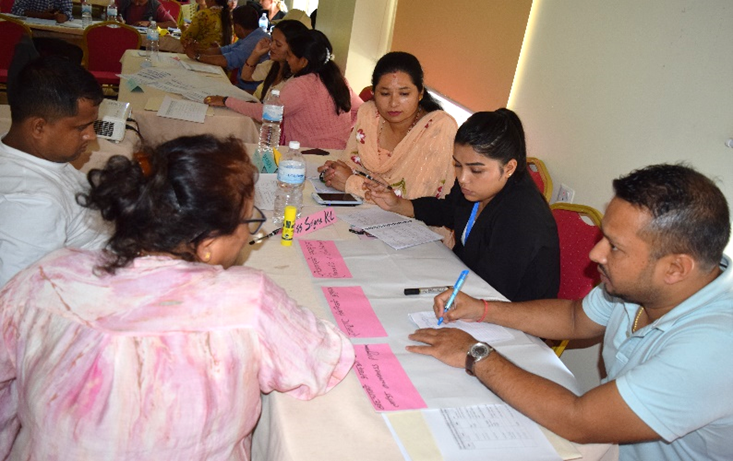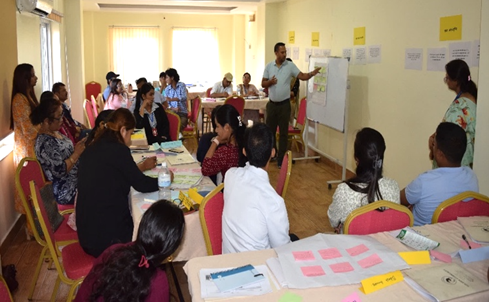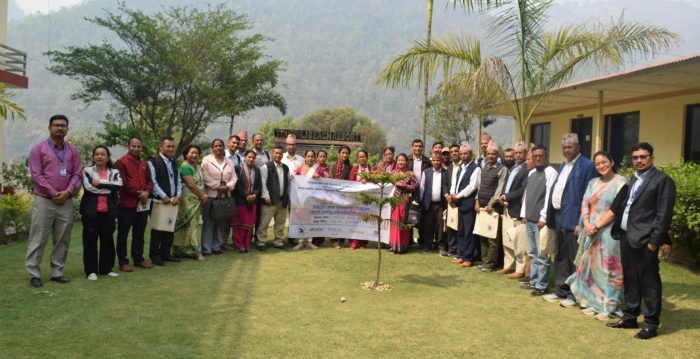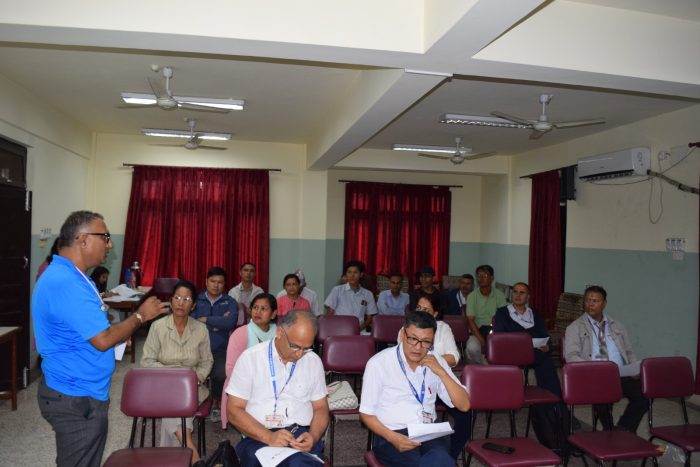The FINE-DDD research project aims to determine the prevalence of developmental delays and disabilities (DDD) in children in Nepal who have received medical interventions for birth complications, and to co-design a family-centred intervention for children and caregivers with the active participation of various stakeholders from both the demand and supply sides. The research project is largely based on community engagement and a multidisciplinary team approach.
Objectives of co-design process
- To identify the needs, access and satisfaction of services for children with DDD and their families in Nepal.
- Identify challenges to satisfaction and access at 1) personal, 2) societal and 3) institutional levels.
- To co-design new solutions to address the identified challenges within the 3 levels.
- To co-design and adapt identified high-impact interventions that stakeholders consider desirable, relevant and sustainable in their local context.
- To select priority interventions and co-design strategies for implementation and evaluation.
Partcipants and facilitators
The total number of participants was 32 and included the following stakeholders: carers of children with disabilities (5), teachers (6), health professionals from hospitals (4), representatives from organisations providing services for children with DDD (4), representatives from parents’ associations (4), representatives from the municipal disability network (2). From Uppsala University, there was a principal investigator (1) and medical students (2). From Golden Community there were facilitators (2), moderators (2).
Process:
A two-day workshop was held in August 2024, which included three steps of the co-design process: Define, to identify and prioritise the specific needs and problems; Ideate, to generate ideas for solutions to the identified needs/problems; and Prototype, to develop feasible prototypes based on the ideas for solutions.
Activities

